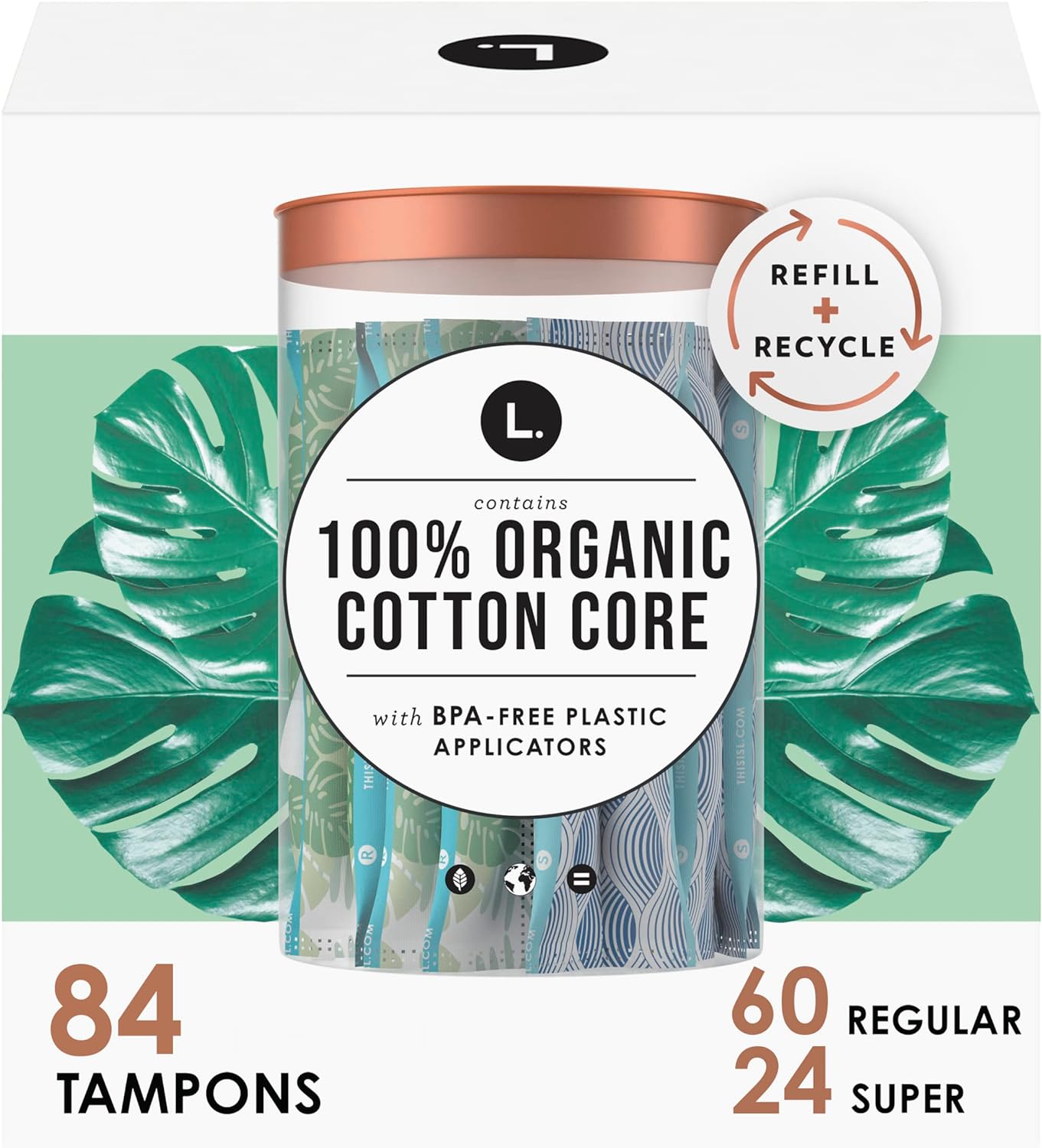
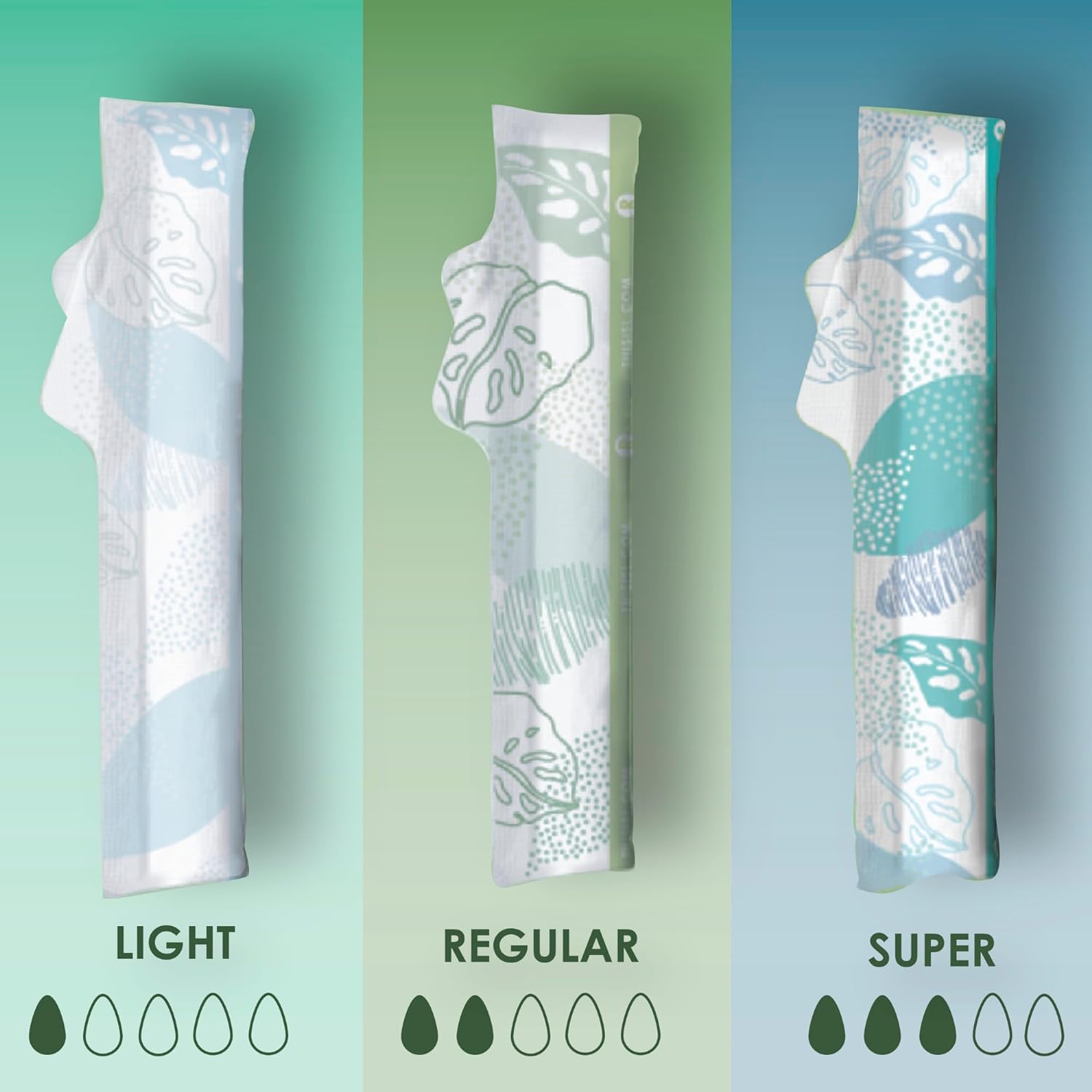
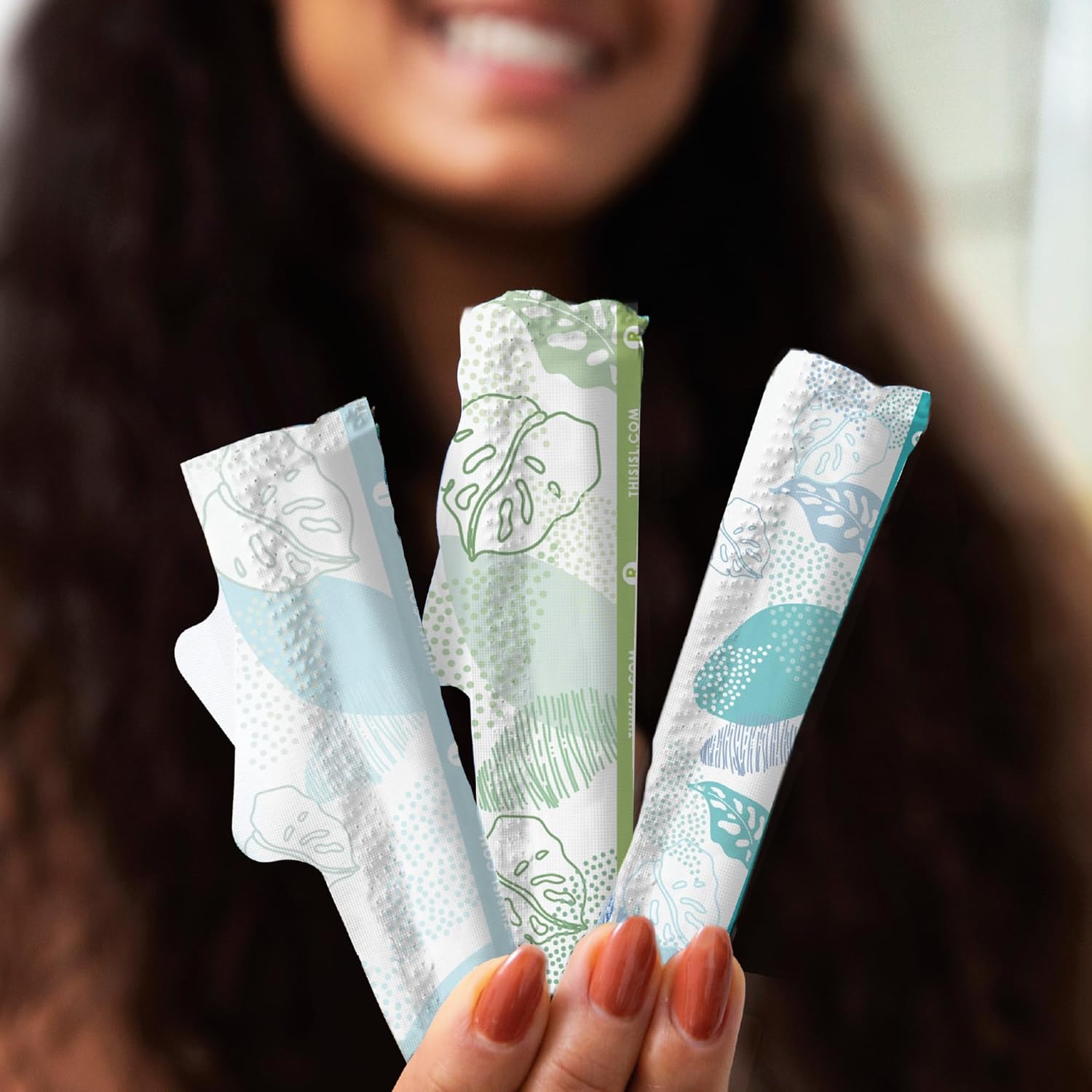
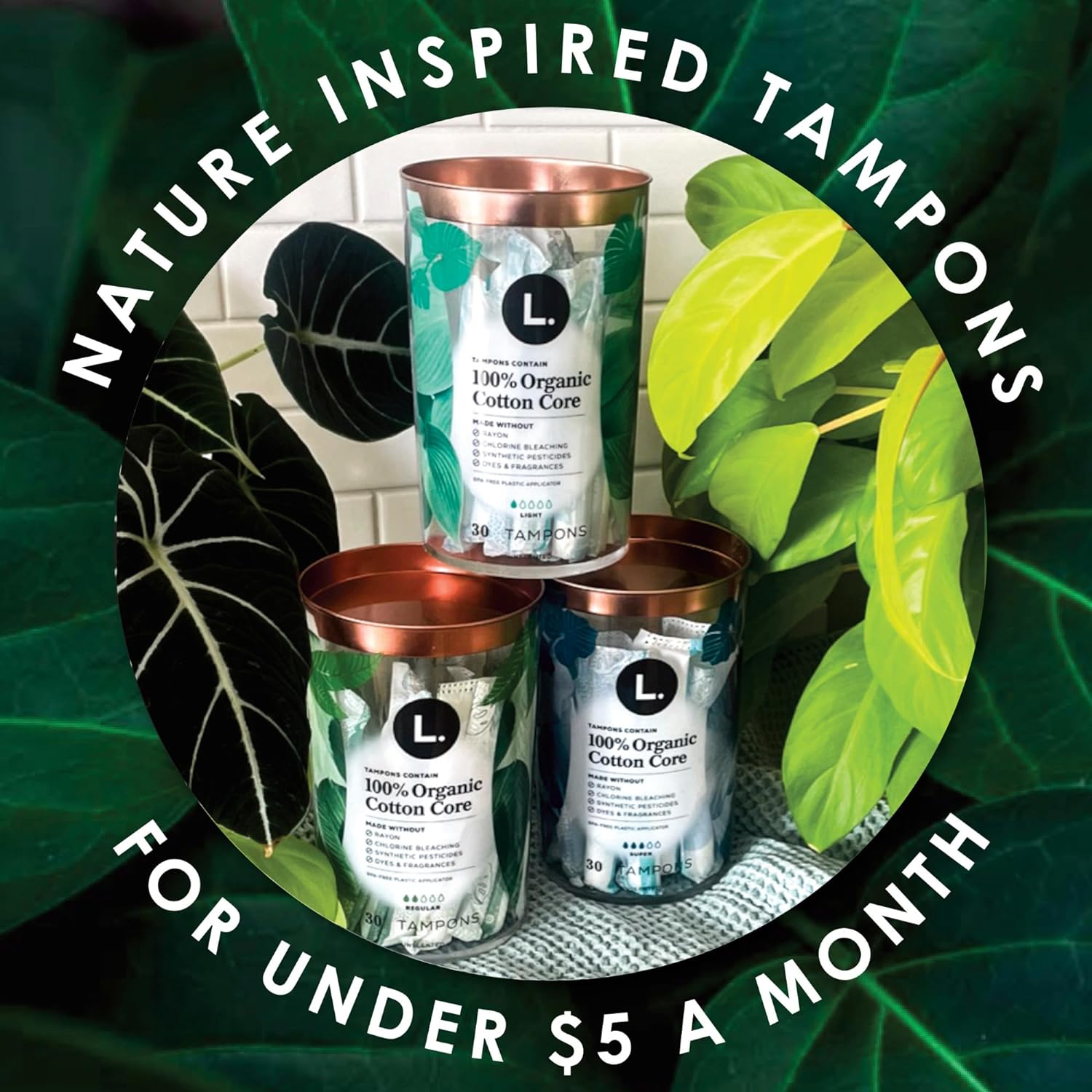
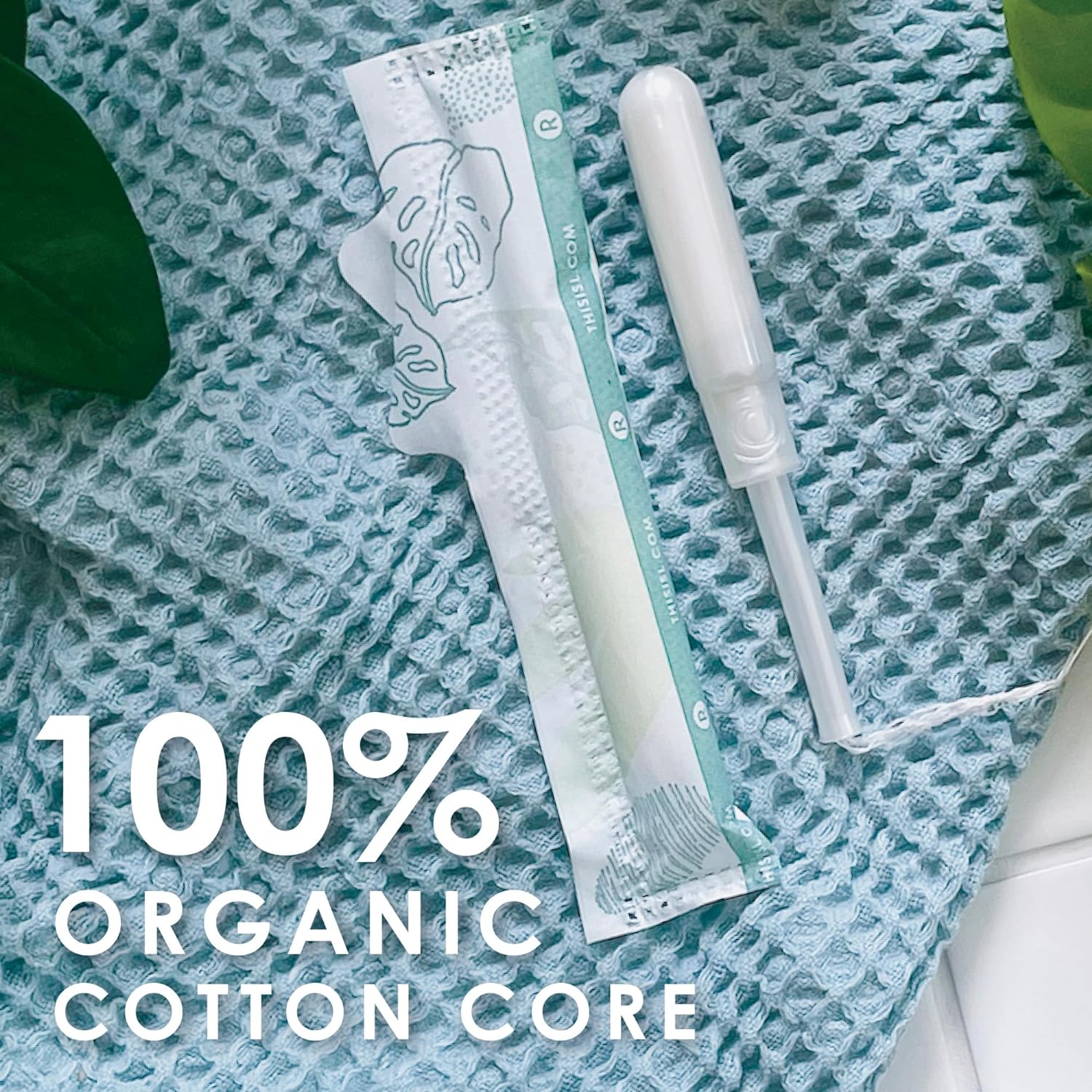
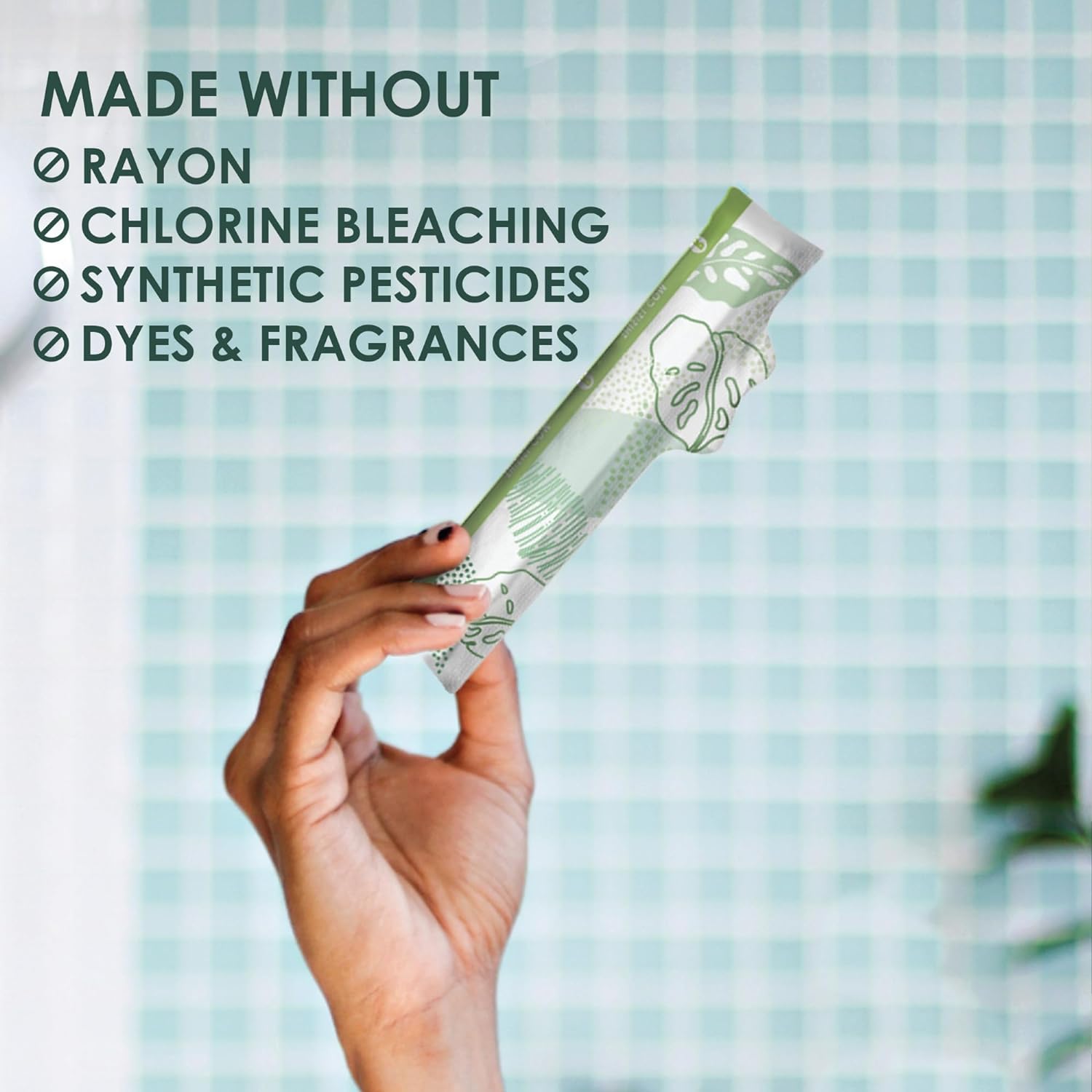
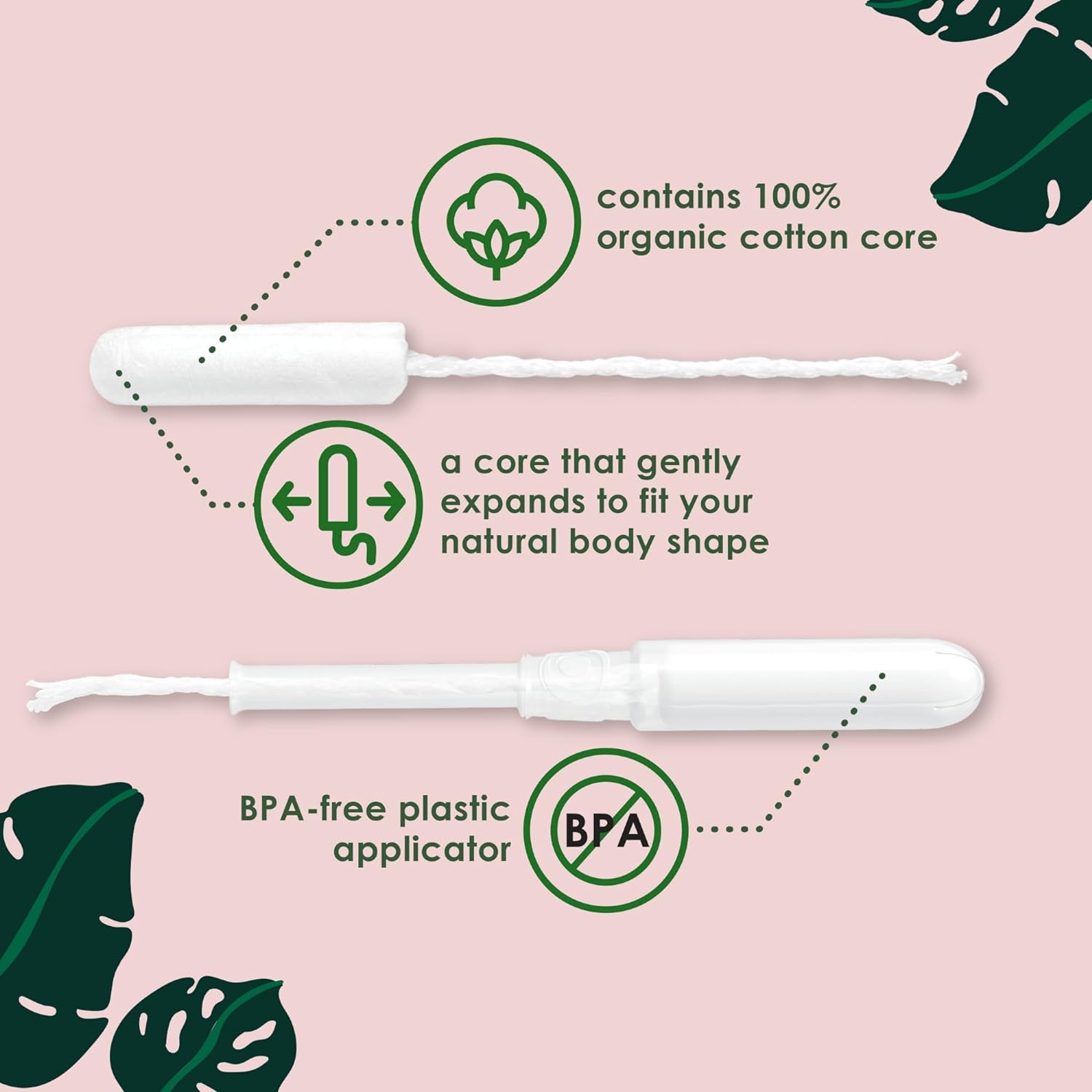
L. Organic Cotton Tampons - 100% Cotton, No Chemicals, Comfortable Applicator - 84 Count


Polyester
Low RiskPolyester is a synthetic polymer primarily used in textiles and various consumer products. It is known for its durability, resistance to wrinkles, and ease of care. Polyester fibers are commonly blended with other materials to enhance fabric performance in clothing and upholstery.
Sustai Insights
Polyester offers functional benefits such as durability and resistance to shrinking, making it a popular choice in textiles. It is typically considered low risk for health concerns, including carcinogenicity and allergies. Environmentally, polyester can contribute to pollution and has limited biodegradability. Regulatory assessments do not currently restrict its use. Overall, polyester is assessed as low risk, though sustainable alternatives like organic cotton or recycled polyester can be considered.
Paraffin
Low RiskParaffin is a solid mixture of hydrocarbons obtained from petroleum, primarily used as a moisturizing and emollient agent in cosmetic and personal care products. Its properties help to create a barrier on the skin, preventing moisture loss and enhancing product texture.
Sustai Insights
Paraffin serves as an effective emollient and moisture barrier, contributing to product stability and user experience. It has a low potential for health risks, including carcinogenicity and allergenic reactions. Environmental concerns include low to moderate persistence and bioaccumulation; however, it is generally not classified as a significant pollutant. Regulatory bodies have imposed restrictions on its use in certain applications. Overall, paraffin is assessed as low risk, making it a widely used ingredient, though alternatives exist for those seeking more sustainable options.
Vegetarian Glycerin
Low RiskVegetarian glycerin, also known as glycerol, is a colorless, odorless, and viscous liquid derived from plant sources. It is primarily used as a humectant, solvent, and emollient in various personal care products, helping to retain moisture and improve texture.
Sustai Insights
Vegetarian glycerin offers functional benefits as an effective humectant, promoting hydration and skin smoothness. It is biodegradable and typically sustainably sourced. Health risks associated with glycerin are low, with no significant concerns for carcinogenicity, allergens, or reproductive toxicity. Environmental risks are minimal, and it is not subject to major regulatory warnings. Overall, the risk level for this ingredient is low, making it a safe choice in formulations. Safe usage practices include ensuring proper concentrations in products, and alternatives such as propylene glycol exist but may have differing properties.
Gossypium Herbaceum (Cotton)
Low RiskGossypium herbaceum (cotton) is a soft white fiber obtained from the cotton plant, primarily used in textiles and personal care products. It serves as a natural filler, providing texture and absorbency in various formulations.
Sustai Insights
Gossypium herbaceum offers functional benefits such as enhancing product texture and moisture retention. It is sustainably sourced, biodegradable, and generally considered safe with low health risks, including minimal concerns for carcinogenicity, allergenicity, or reproductive toxicity. There are no significant environmental hazards linked to its use, and it is not subject to regulatory restrictions. Overall, the risk level associated with this ingredient is low, making it a suitable choice in various applications.
Polyester
Low RiskPolyester is a synthetic polymer primarily used in textiles and various consumer products. It is known for its durability, resistance to wrinkles, and ease of care. Polyester fibers are commonly blended with other materials to enhance fabric performance in clothing and upholstery.
Sustai Insights
Polyester offers functional benefits such as durability and resistance to shrinking, making it a popular choice in textiles. It is typically considered low risk for health concerns, including carcinogenicity and allergies. Environmentally, polyester can contribute to pollution and has limited biodegradability. Regulatory assessments do not currently restrict its use. Overall, polyester is assessed as low risk, though sustainable alternatives like organic cotton or recycled polyester can be considered.
Paraffin
Low RiskParaffin is a solid mixture of hydrocarbons obtained from petroleum, primarily used as a moisturizing and emollient agent in cosmetic and personal care products. Its properties help to create a barrier on the skin, preventing moisture loss and enhancing product texture.
Sustai Insights
Paraffin serves as an effective emollient and moisture barrier, contributing to product stability and user experience. It has a low potential for health risks, including carcinogenicity and allergenic reactions. Environmental concerns include low to moderate persistence and bioaccumulation; however, it is generally not classified as a significant pollutant. Regulatory bodies have imposed restrictions on its use in certain applications. Overall, paraffin is assessed as low risk, making it a widely used ingredient, though alternatives exist for those seeking more sustainable options.
Vegetarian Glycerin
Low RiskVegetarian glycerin, also known as glycerol, is a colorless, odorless, and viscous liquid derived from plant sources. It is primarily used as a humectant, solvent, and emollient in various personal care products, helping to retain moisture and improve texture.
Sustai Insights
Vegetarian glycerin offers functional benefits as an effective humectant, promoting hydration and skin smoothness. It is biodegradable and typically sustainably sourced. Health risks associated with glycerin are low, with no significant concerns for carcinogenicity, allergens, or reproductive toxicity. Environmental risks are minimal, and it is not subject to major regulatory warnings. Overall, the risk level for this ingredient is low, making it a safe choice in formulations. Safe usage practices include ensuring proper concentrations in products, and alternatives such as propylene glycol exist but may have differing properties.
Gossypium Herbaceum (Cotton)
Low RiskGossypium herbaceum (cotton) is a soft white fiber obtained from the cotton plant, primarily used in textiles and personal care products. It serves as a natural filler, providing texture and absorbency in various formulations.
Sustai Insights
Gossypium herbaceum offers functional benefits such as enhancing product texture and moisture retention. It is sustainably sourced, biodegradable, and generally considered safe with low health risks, including minimal concerns for carcinogenicity, allergenicity, or reproductive toxicity. There are no significant environmental hazards linked to its use, and it is not subject to regulatory restrictions. Overall, the risk level associated with this ingredient is low, making it a suitable choice in various applications.
Experience comfort and confidence with L. Organic Cotton Tampons, a thoughtfully designed feminine care solution that prioritizes your health and the planet. This multipack includes 84 tampons made from 100% organic cotton, free from harmful chemicals and fragrances, ensuring a gentle touch for your body.
- Natural Ingredients: Made from 100% organic cotton, these tampons are free from chlorine bleaching, pesticides, rayon, and dyes, offering a safe option for your period care.
- Secure Fit: The gently expanding core adapts to your body shape, providing a reliable and comfortable fit throughout the day.
- Convenient Applicator: Each tampon comes with a full-size BPA-free plastic applicator, ensuring smooth insertion for ease and comfort.
- Easy-to-Open Wrapper: Designed for hassle-free use, the easy-to-open wrapper ensures you can quickly access what you need when you need it.
- Ethical Mission: L. is committed to making exceptional period care accessible for all, supporting sustainability and responsible sourcing.
Choose L. Organic Cotton Tampons for a healthier period experience that aligns with your values.
Subscribe & Save with Sustai
- Best Price Guarantee: Always enjoy the lowest prices on sustainable home essentials.
- No Surprises: We’ll notify you before shipping. No hidden fees, ever.
- You’re in Charge: Change, pause, or cancel your subscription anytime with ease.
- Eco-Friendly Deliveries: Our grouped shipments mean less packaging and lower emissions.
Join us on a sustainable journey. Special offers for a limited time! Prices and promotions may change.
Recommended Products
Experience comfort and confidence with L. Organic Cotton Tampons, a thoughtfully designed feminine care solution that prioritizes your health and the planet. This multipack includes 84 tampons made from 100% organic cotton, free from harmful chemicals and fragrances, ensuring a gentle touch for your body.
- Natural Ingredients: Made from 100% organic cotton, these tampons are free from chlorine bleaching, pesticides, rayon, and dyes, offering a safe option for your period care.
- Secure Fit: The gently expanding core adapts to your body shape, providing a reliable and comfortable fit throughout the day.
- Convenient Applicator: Each tampon comes with a full-size BPA-free plastic applicator, ensuring smooth insertion for ease and comfort.
- Easy-to-Open Wrapper: Designed for hassle-free use, the easy-to-open wrapper ensures you can quickly access what you need when you need it.
- Ethical Mission: L. is committed to making exceptional period care accessible for all, supporting sustainability and responsible sourcing.
Choose L. Organic Cotton Tampons for a healthier period experience that aligns with your values.

You can have at most 2 Sustainable Steals products in your cart
Customer Reviews
Customers’ View
Customers appreciate the comfort and safety of L. Organic Cotton Tampons, noting their effectiveness and eco-friendly design. Many users highlight the 100% organic cotton core, which provides a chemical-free option that feels more natural. One customer mentioned, "I can use tampons again!!!" after switching to organic, emphasizing the positive change in their experience. The tampons are also praised for their ease of insertion and reliable absorbency, with several reviews stating they have encountered no leakage issues. While some users desire more absorbency options, the overall sentiment reflects a commitment to health-conscious choices, with many valuing the organic materials used. Overall, customers find these tampons to be a suitable and sustainable option for their needs.
AI-generated from the text of customer reviewsThis product is rated 4.6 of 5.0 stars.
It has received 67 reviews.





